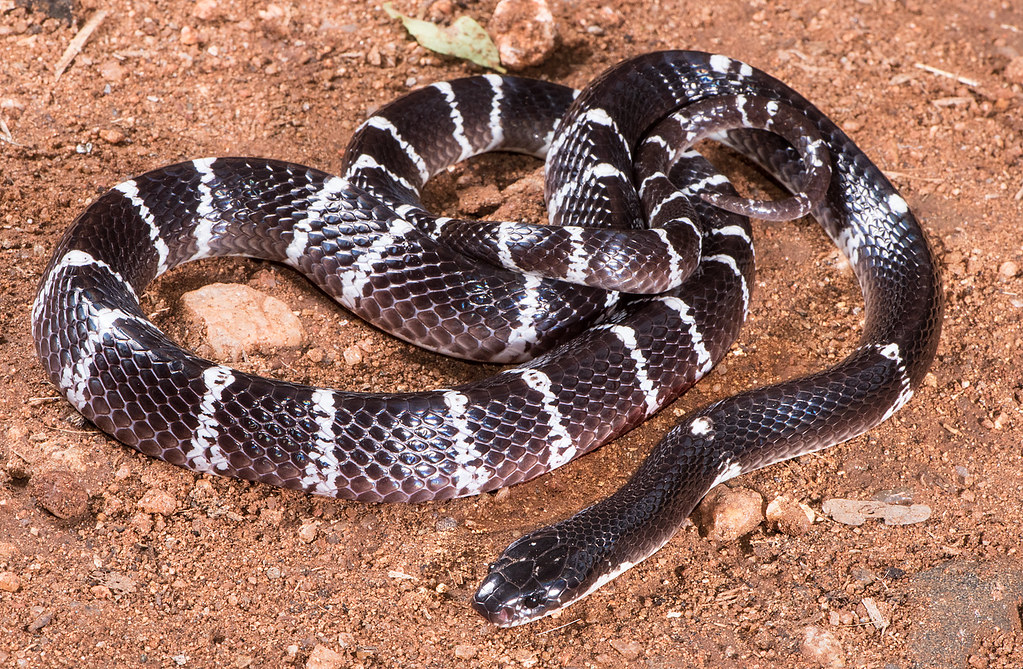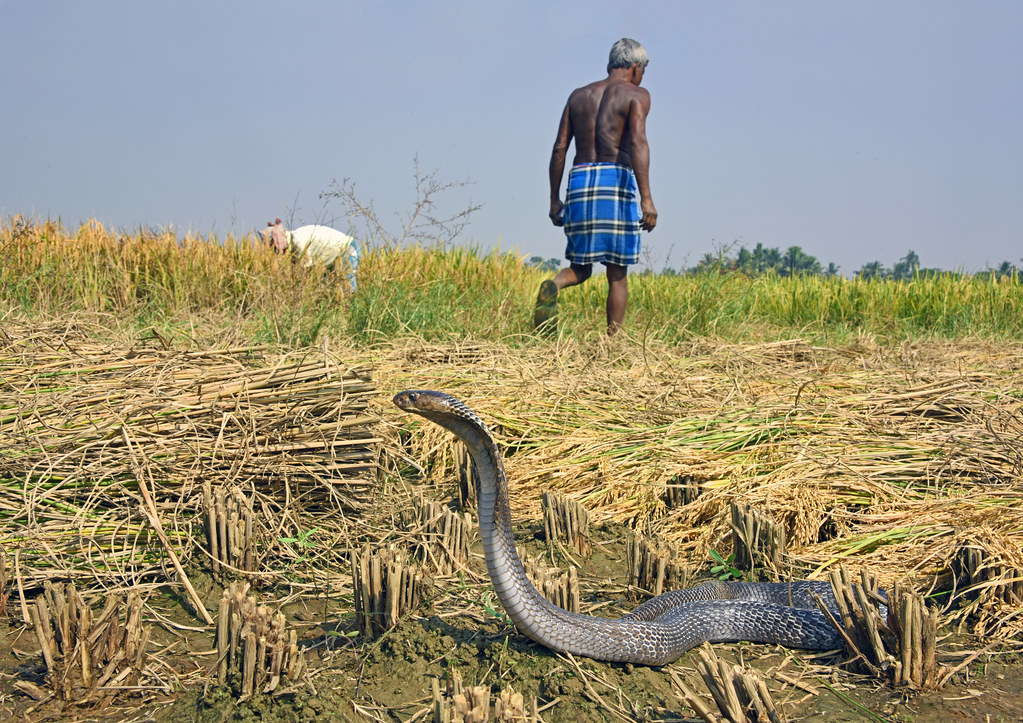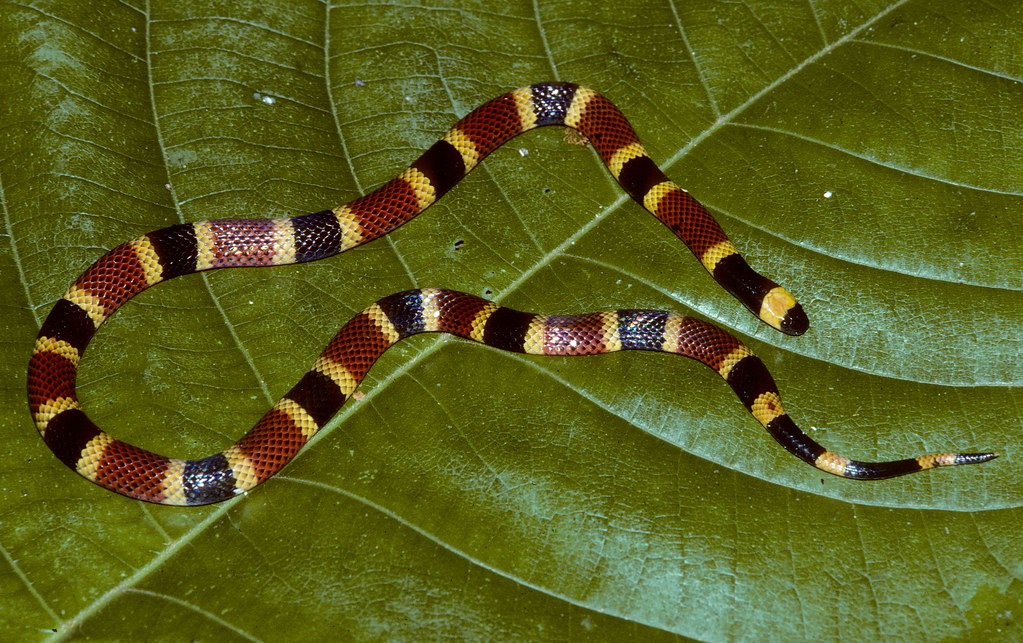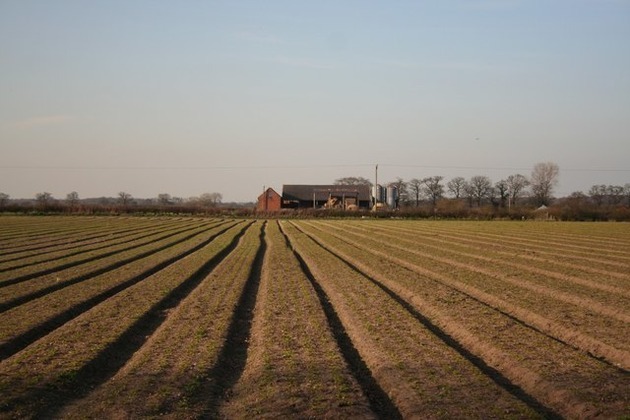Snake Venom Evolved for Prey Not Protection
ACCESS Newswire
25 Mar 2020, 21:01 GMT+10
BANGOR, WALES / ACCESSWIRE / March 25, 2020 / It is estimated that every year, over 100,000 human deaths can be attributed to snakebite from the world's 700 venomous snake species - all inflicted in self-defence when the snakes feel threatened by encroaching humans. However, a new piece of research concludes that snake venom did not evolve as a defence mechanism.
Senior Lecturer Dr Wolfgang Wüster, a world-renowned expert on snake venom evolution at Bangor University's School of Natural Sciences explained:
'We know that snake venom is used primarily for foraging; for overpowering and killing prey. However, we also know that snakes use their venom in self-defence - that's why so many people get bitten, and sometimes killed, by venomous snakes worldwide. We wanted to investigate whether defence was a driver in venom evolution.'
To provide efficient defence from a predator, the snake venom would need to provide sufficient instant pain to deter the predator and enable the snake to escape, much as a bee-sting hurts immediately.
A new paper published in Toxins (https://www.mdpi.com/2072-6651/12/3/201) reveals that surprisingly few venomous snake bites cause immediate pain, implying that the venom make-up has not evolved for a defensive primary purpose.
Bangor University student Harry Ward-Smith tested this hypothesis under Dr Wüster's supervision. He gathered online survey responses from reptile keepers, herpetologists and field workers, as part of his undergraduate degree in Zoology with Herpetology.
His survey, which gained nearly 400 responses world-wide, asked people working with snakes about the time-course of pain after bites they had sustained.
The results of around 600 experiences revealed that only a minority of bites and species regularly cause rapid, severe pain. Moreover, where early pain evolves during snake evolution, it is likely to be lost again in descendant lineages.
Dr Kevin Arbuckle, Senior Lecturer in Biosciences (Evolutionary Biology) at Swansea University's Department of Biosciences and a co-author of the paper commented:
'Our results suggest little evidence for widespread evolution of venoms driven by their use in defence, though interesting exceptions likely exist such as the defensive use of venom 'spitting' in some cobras, and these specific cases deserve further study.'
Dr Wüster added:
'Even though we might have expected defending your life to be more important than feeding, it turns out that natural selection for diet does seem to be the main driver of venom evolution in snakes'
Harry Ward-Smith said:
'I'm proud to be in the minority of scientists who published their undergraduate work, writing this up took a lot of work even after graduating.
I hope studies like this start to encourage further research into the function and natural ecology of snake venom, particularly rear-fanged venomous snakes which we still know so little about.'
Harry Ward-Smith 24 from Wimbledon, London chose to study Masters in Zoology with Herpetology at Bangor University because it is the only degree in the UK which specialised in herpetology. He added that a bonus of studying at Bangor was that much of the UK's best white-water kayaking was within striking distance in Snowdonia.
Since graduating Harry has radio-tracked the Green Cat Snake within the Sakaerat Biosphere Reserve, Thailand and taught at further education in the UK. He is now considering further research opportunities, quite possibly a PhD in the near future.
Contact for further information:
Elinor Elis-Williams, Bangor University, [email protected] 01248 383298
All images Single use only and credit Wolfgang Wüster
Captions:

Image 1:
venom: Indian kraits (Bungarus caeruleus) are notorious for biting sleeping people at night. While highly lethal, the bites are so painless that they are often dismissed as trivial until it is too late. This indicates no defensive function for this venom

Image 2:
Many snakes, like this Indian cobra (Naja naja) will use their venoms in self-defence, causing millions of bites every year. However, did their venoms evolve for this function? This new study suggests that it did not.

Image 3:
Defensive venom? Some coral snakes (Micrurus) have specifically pain-inducing toxins in their venoms, suggesting that natural selection for defence may have played a role in their evolution - a possible exception to the rule uncovered in this study.
Editor's Notes:
- Full paper: Fangs for the Memories? A Survey of Pain in Snakebite Patients Does Not Support a Strong Role for Defense in the Evolution of Snake Venom Composition
- 584 online surveys completed. People regularly in contact with snakes were targetted as it was felt that they would be able to identify species and their familiarity with snakes would mean that they were less susceptible to fear-induced memory distortion.
- It is highly likely that most predators would show similar reactions to envenomation to the human ‘model' chosen.
- In all snake families, mean pain levels within one and five minutes after bite were considerably lower than the maximum pain levels reported in later phases of envenoming.
- The pain became too distracting for normal activities within the first five minutes in only 14.55% of bite victims, and later than five minutes in another 30.82%.
- Remarkably, 54.62% reported never experiencing pain great enough to make normal activities impossible.
SOURCE: Bangor University
View source version on accesswire.com:
https://www.accesswire.com/582486/Snake-Venom-Evolved-for-Prey-Not-Protection
 Share
Share
 Tweet
Tweet
 Share
Share
 Flip
Flip
 Email
Email
Watch latest videos
Subscribe and Follow
Get a daily dose of Chicago Chronicle news through our daily email, its complimentary and keeps you fully up to date with world and business news as well.
News RELEASES
Publish news of your business, community or sports group, personnel appointments, major event and more by submitting a news release to Chicago Chronicle.
More InformationBusiness
SectionEngine defect prompts Nissan to recall over 443,000 vehicles
FRANKLIN, Tennessee: Hundreds of thousands of Nissan and Infiniti vehicles are being recalled across the United States due to a potential...
Microsoft trims jobs to manage soaring AI infrastructure costs
REDMOND, Washington: Microsoft is the latest tech giant to announce significant job cuts, as the financial strain of building next-generation...
Stocks worldwide struggle to make ground Friday with Wall Street closed
LONDON UK - U.S. stock markets were closed on Friday for Independence Day. Global Forex Markets Wrap Up Friday with Greeback Comeback...
Nvidia briefly tops Apple’s record in AI-fueled stock rally
SANTA CLARA, California: Nvidia came within a whisker of making financial history on July 3, briefly surpassing Apple's all-time market...
ICE raids leave crops rotting in California, farmers fear collapse
SACRAMENTO, California: California's multibillion-dollar farms are facing a growing crisis—not from drought or pests, but from a sudden...
Trump signals progress on India Trade, criticizes Japan stance
WASHINGTON, D.C.: President Donald Trump says the United States could soon reach a trade deal with India. He believes this deal would...
Illinois
SectionEighth inning turns tide for Cardinals in win over Cubs
(Photo credit: Patrick Gorski-Imagn Images) Yohel Pozo hit a pinch three-run homer to lift the visiting St. Louis Cardinals past...
Rockies face White Sox, still hope for first home-series victory
(Photo credit: Brad Mills-Imagn Images) The Colorado Rockies have yet to win a home series this season, but they still have a chance...
On 31st birthday, Dodgers' Shohei Ohtani to pitch against Astros
(Photo credit: Peter Aiken-Imagn Images) Shohei Ohtani's ramp up toward becoming a full-fledged starting pitcher will continue Saturday...
Royals try to maintain offensive production against D-backs
(Photo credit: Joe Camporeale-Imagn Images) The Kansas City Royals have an opportunity to earn their first series win in Phoenix...
Roundup: Rallies held across U.S. on Independence Day against Trump policies
These July 4 protests stood in stark contrast to Trump's America 250 initiative, launched on Memorial Day in May to count down to the...
White Sox SS Colson Montgomery makes big-league debut
(Photo credit: Joe Camporeale-Imagn Images) Chicago White Sox shortstop prospect Colson Montgomery, promoted from Triple-A Charlotte...













